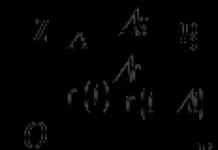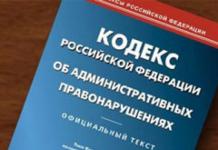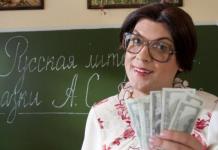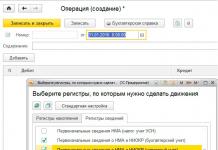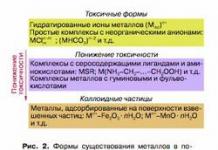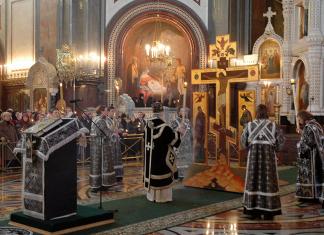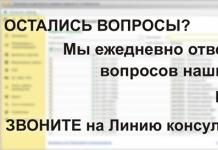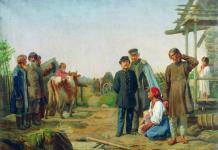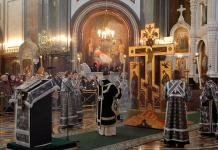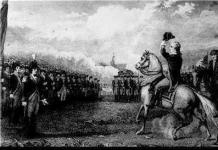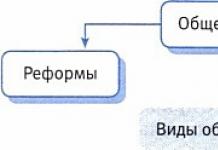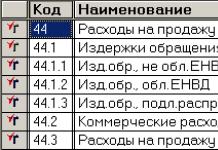1 United States of America – 270:
This fact in itself is not a surprise; the country still has the best research institutes and a whole galaxy of wonderful scientists. However, something else is surprising. The country has been losing its leading position in recent years, and their share among Nobel Prize laureates has been steadily decreasing. Throughout the 1960s, the United States consistently had the highest number of Nobel laureates, and now its share is just over 50%. It may not be fundamental, but the fact remains that other countries are beginning to gain positions in the field of science and literature.
2 UK – 117:

The country has a number of world-renowned universities, as well as the best centers for scientific research. It is quite logical that representatives of Great Britain are the second in the number of laureates in medicine and the first among literary prize winners. After all, the British have produced some of the finest literature of the century.
3 Germany – 103:

Germany isn't too far behind on this list. So far it is represented by 30 laureates in the field of chemistry and 32 physics. Their winning ratio has also been gradually decreasing over the years, all thanks to developing countries that are gradually replacing the established leaders.
4 France – 57:

France is located at some distance; most of the prizes received by representatives of this country were in the field of literature and medicine. Their most famous recipient was Jean Paul Sartre, who declined the award, and of course husband and wife Marie and Pierre Curie, who were awarded the Nobel Prize in 1903 and 1911. Marie Curie received the prize after her husband's death in the field of chemistry.

The ancestor country of the award currently has 28 laureates.
In 1903, Svante Arrhenius received the first prize in chemistry, and in 1982, Alva Myrdal was awarded the Nobel Peace Prize for her activism in the field of disarmament.
6 Switzerland – 25:

If we count the number of winners per capita, Switzerland would certainly be at the top of the table. It has three Nobel laureates per million inhabitants. The list of winners includes names such as Hermann Hesse in the field of literature and Albert Einstein in the field of physics.
7 USSR - Russia - 23:

Mikhail Gorbachev, who received the Peace Prize in 1990, Boris Pasternak, who was forced to refuse the literary prize in 1958, and Alexander Solzhenitsyn, whose award in the field of literature contributed to his expulsion from the country in 1970. The list of laureates, representatives of the country, includes many big names in almost all categories.
8 Austria - 20:

The first representative of this country to receive the prize was Baroness Bertha von Suttner, who received the Peace Prize in 1905. The country is represented by seven nominees in the field of medicine.
9 Canada - 20:

Canada has also been awarded twenty Nobel prizes, seven of which were in the field of chemistry. Their most recent winners are Willard Boyle in physics and Jack Szostak in medicine or physiology, both of whom received the prize in 2009.
10 Netherlands – 19:

Another small nation, but it also has a number of winners, Nobel Prize laureates. Among the first representatives of this country to receive the prize were physicists Pieter Zeeman and Hendrik Lorentz, who jointly received it in 1902.
All Russian Nobel Prize laureates
1904 Physiology and medicine, Ivan Petrovich Pavlov
The great Russian physiologist, who went down in medical history as one of the first researchers of conditioned reflexes, first conducted a revolutionary experiment, which has now become a classic, with a hungry dog, which was supposed to respond to the sound of a bell, which was associated with food. I.P. Pavlov was awarded the Nobel Prize in Physiology or Medicine for his research.

1908 Physiology and Medicine, Ilya Ilyich Mechnikov
Russian embryologist, bacteriologist and immunologist I. I. Mechnikov, together with Paul Ehrlich, was awarded the Nobel Prize “for his work on immunity.” After the discoveries of L. Pasteur and R. Koch, the main question of immunology remained unclear: “How does the body manage to defeat pathogenic microbes that, having attacked it, were able to gain a foothold and began to develop?” Trying to find the answer to this question, Mechnikov laid the foundation for modern research in immunology and had a profound influence on the entire course of its development.

1933 Literature, Ivan Alekseevich Bunin
The famous Russian writer Ivan Bunin did not accept the revolution of 1917 and left Russia forever. He ended up in Paris. Subsequently, this city was called the city of Bunin. There he lived, read his stories, stories, and sometimes poems to his friends. He loved Russia very much and wrote only about it. In 1922, Romain Rolland nominated Bunin for the Nobel Prize. And so in 1933, on November 10, all the newspapers in Paris came out with large headlines: “Bunin - Nobel laureate.”

1956 Chemistry, Nikolai Nikolaevich Semenov
(together with the English chemist S. Hinshelwood)
Russian scientist, academician, one of the founders of chemical physics, founder of a scientific school, twice Hero of Socialist Labor, created a general quantitative theory of chain reactions, a theory of thermal breakdown of dielectrics, and developed a theory of thermal explosion of gas mixtures. He was awarded the Lenin Prize and the USSR State Prize.

1958 Physics, Pavel Alekseevich Cherenkov
In 1937 P.A. Cherenkov discovered radiation, unusual in polarization and wavelength, that was emitted by water if it was irradiated with gamma radiation. Now this radiation and the effect itself are called Vavilov-Cherenkov radiation (effect). The cause of this radiation was explained by the movement of particles at speeds exceeding the speed of light by I. M. Frank and I. E. Tamm. P. A. Cherenkov was awarded (together with I. E. Tamm and I. M. Frank) the Nobel Prize "for the discovery and explanation of the Cherenkov effect."

1958 Physics, Ilya Mikhailovich Frank
Professor at Moscow State University, head of the Laboratory of Radioactive Radiation at the Research Institute of Nuclear Physics, developed the theory of motion at a speed greater than the speed of light in matter, academician of the USSR Academy of Sciences, laureate of the State Prize, together with P. A. Cherenkov and I. E. Tamm, received the Nobel Prize in Physics " for the discovery and explanation of the Cherenkov effect."

1958 Physics, Igor Evgenievich Tamm
Together with physicists P. A. Cherenkov and I. M. Frank, he received the Nobel Prize “for the discovery and explanation of the Cherenkov effect. The work of Frank and Tamm is a mathematical description of the effect discovered by Cherenkov, which “in addition to simplicity and clarity, also satisfied strict mathematical requirements.”

1958 Literature, Boris Leonidovich Pasternak
Poems, excellent translations of "Hamlet" by W. Shakespeare, "Faust" by Goethe, Sandor Petofi, Schiller. Over the course of 10 years, he created the novel Doctor Zhivago. The author considered writing the novel to be “fulfilling his duty” to his compatriots. B. Pasternak was awarded the Nobel Prize in Literature "for outstanding achievements in modern lyric poetry and in the traditional field of great Russian prose." Pasternak was forced to refuse the prize. He sent only a telegram to the Swedish Academy of Sciences, which contained the following words: “Endlessly grateful, touched, proud, surprised, embarrassed.” He was offered to leave Russia, but the poet replied that he could not imagine himself outside his homeland.

1962 Physics, Lev Davidovich Landau
Laureate of the Stalin Prize, formulated the theory of multiple particle production in the collision of high-energy beams, introduced the concept of combined parity, built the theory of the two-component neutrino, formulated a theory for the Fermi-type “quantum liquid”. Awarded the Max Planck Medal and the Fritz London Prize. Awarded the 1962 Nobel Prize in Physics for "revolutionary theories in the field of condensed matter physics, especially liquid helium."

1964 Physics, Nikolai Gennadievich Basov
Professor, director of the Physical Institute of the USSR Academy of Sciences, Lenin Prize laureate for research on the creation of molecular oscillators and paramagnetic amplifiers, explored the possibilities of using lasers to produce thermonuclear plasma. Together with A. M. Prokhorov and Charles Townes, he received the Nobel Prize in Physics for developing the operating principle of the laser and maser.

1964 Physics, Alexander Mikhailovich Prokhorov
Full member of the Russian Academy of Sciences, editor-in-chief of the Great Soviet Encyclopedia, founder of the Institute of General Physics of the Russian Academy of Sciences, laureate of the Lenin and State Prizes in science and technology and the Nobel Prize in Physics, creator of quantum electronics. Together with N.G. Basov and Charles Townes received the Nobel Prize in Physics for developing the operating principle of the laser and maser.

1965 Literature, Mikhail Alexandrovich Sholokhov
In 1965, Sholokhov M.A. The Nobel Prize is awarded for the novel "Quiet Don".

1970 Literature, Alexander Isaevich Solzhenitsyn
For disagreement with official policy, he was expelled from the Union of Writers of the USSR. His works were published abroad. In 1970, Solzhenitsyn was awarded the Nobel Prize in Literature. In 1973, the 1st volume of The Gulag Archipelago was published in France. In 1974 he was arrested, accused of “treason,” deprived of Soviet citizenship and taken out of the country without trial.

1975 Peace Prize, Andrei Dmitrievich Sakharov
Russian physicist and human rights activist, academician of the USSR Academy of Sciences, was involved in the development of thermonuclear weapons. Together with Tamm he participated in studies of controlled thermonuclear reactions.

1975 Economics, Leonid Vitalievich Kantorovich
L.V. Kantorovich was awarded the Nobel Prize in Economics (together with the American economist T. Koopmans) for his work on optimization theory.

1978 Physics, Pyotr Leonidovich Kapitsa
Russian physicist and engineer, academician of the USSR Academy of Sciences, Hero of Socialist Labor. Works on the physics of magnetic phenomena, physics and technology of low temperatures, quantum physics of condensed matter, electronics and plasma physics, developed a pulsed method for creating superstrong magnetic fields, invented and built a machine for adiabatic cooling of helium, discovered the superfluidity of liquid helium. Laureate of the USSR State Prize, awarded the Gold Medal. Lomonosov. medal of Faraday (England), Franklin (USA), Niels Bohr (Denmark), Rutherford (England), Kamerlingh Onnes (Netherlands). Awarded the Nobel Prize in Physics “for fundamental inventions and discoveries in the field of low-temperature physics” (jointly with Arno Allan Penzias and Robert Woodrow Wilson.

1987 Literature, Joseph Brodsky
The famous poet was awarded the Nobel Prize in Literature “for his comprehensive authorship, full of clarity of thought and poetic depth.” I. Brodsky is one of the youngest Nobel Prize laureates in all the years of its award. He emigrated to the USA, at the time of the award he had already lived abroad for 15 years and was a US citizen.

1990 Peace Prize, Mikhail Sergeevich Gorbachev.
President of the USSR.

2000 Physics, Zhores Ivanovich Alferov
Professor, Director of the Physico-Technical Institute named after. A.F. Ioffe RAS, one of the largest Russian scientists in the field of physics and semiconductor technology. Prize winner: Ballantine Institute of Franklin (USA). Lenin Prize. Hewlett-Packard Prize of the European Physical Society, State Prize. GaAs Symposium Award. A.P. Karpinsky Prize, Prize named after. A.F. Ioffe RAS, national non-governmental Demidov Prize. Awarded the H. Welker medal. Honorary member of many Academies of Sciences. He became a Nobel Prize laureate in physics, sharing it with American scientists Herbert Kremer and Jack Kilby.

2003 Physics, Alexey Alekseevich Abrikosov
Soviet theoretical physicist, corresponding member of the USSR Academy of Sciences. Since 1991, Abrikosov has been working in the USA. Winner of the Lenin and State Prizes, the London Prize, the Nobel Prize jointly with V. Ginzburg and Anthony Leggett "for his contribution to the development of the theory of superconductors and superfluidity."

2003 Physics, Vitaly Lazarevich Ginzburg
Member of the USSR Academy of Sciences, laureate of the Lenin and State Prizes, the Prize named after. Mandelstam and Lomonosov Prize. Awarded the medal of the Polish Academy of Sciences. Smoluchowski, gold medal of the Royal Astronomical Society of London, Barden Prize, Wolf Prize, gold medal named after. Vavilov, gold medal named after. Lomonosov RAS, the Order of Merit for the Fatherland, the UNESCO Medal. Niels Bohr, American Physical Society Medal. Nicholson, the Triumph Prize. Member of nine foreign academies of sciences. The Nobel Prize was awarded jointly with A. Abrikosov and Anthony Leggett “for their contribution to the development of the theory of superconductors and superfluidity.”
The Nobel Prize in Literature is an award for achievements in the field of literature, awarded annually by the Nobel Committee in Stockholm. Contents 1 Requirements for nominating candidates 2 List of laureates 2.1 1900s ... Wikipedia
Medal awarded to a Nobel Prize laureate The Nobel Prizes (Swedish: Nobelpriset, English: Nobel Prize) are one of the most prestigious international prizes, awarded annually for outstanding scientific research, revolutionary inventions or... ... Wikipedia
Medal of the USSR State Prize Laureate The USSR State Prize (1966 1991) is one of the most important prizes in the USSR along with the Lenin Prize (1925 1935, 1957 1991). Established in 1966 as a successor to the Stalin Prize, awarded in 1941-1954; laureates... ...Wikipedia
Swedish Academy building The Nobel Prize in Literature is an award for achievements in the field of literature, awarded annually by the Nobel Committee in Stockholm. Contents... Wikipedia
Medal of the USSR State Prize Laureate The USSR State Prize (1966 1991) is one of the most important prizes in the USSR along with the Lenin Prize (1925 1935, 1957 1991). Established in 1966 as a successor to the Stalin Prize, awarded in 1941-1954; laureates... ...Wikipedia
Every year, for many years, the Nobel Prize is awarded in Stockholm (Sweden) and Oslo (Norway).
The award is very prestigious and is awarded only to the most worthy representatives who have achieved significant achievements that play an important role in the development of all humanity. In the article we grouped Nobel Prize laureates from Russia and the USSR by field of science.
History of the Nobel Prize
The prize was invented by Alfred Nobel, after whose last name it is called. He was also the first laureate to receive the award for the invention of dynamite in 1867. In 1890, the Nobel Foundation was founded to pay prizes to awarded laureates. His initial capital was the savings of Alfred Nobel, accumulated throughout his life.
The size of the Nobel Prize is quite high, for example in 2010 it was about one and a half billion dollars. Prizes are awarded in the following fields: medicine and physiology, physics, chemistry and literature.
Additionally, the Peace Prize is awarded for active actions in establishing peace throughout the world. Our compatriots have been nominated more than once for the prestigious Nobel Prize in all respects and often become laureates.
Nobel Prize Laureates in Physics
1958 - Igor Tamm, Ilya Frank and Pavel Cherenkov became the first Nobel Prize laureates. The award was presented for collective research in the field of gamma radiation and its effects on various liquids.
During the experiments, a blue glow was discovered, later called the "Cherenkov effect". The discovery made it possible to use new techniques in measuring and detecting the velocities of nuclear, high-energy particles. This was a huge breakthrough for experimental nuclear physics.
In 1962 - Lev Landau. A legendary figure in the history of the development of physics. He conducted a lot of research in various fields of physics and mechanics. He made a huge contribution to the development of many branches of science.
He received his prize for the creation and detailed description of the theory of quantum liquid, as well as for experimental studies of various condensed matter. The main experiments were carried out with liquid helium.
In 1964 - Alexander Prokhorov and Nikolai Basov. The award was received for joint developments in the field of radiophysics and quantum electronics. These studies made it possible to invent molecular generators - masers, as well as special amplifiers that concentrate radiation into one powerful beam.
1978 - In 1978, using the example of helium, he discovered the phenomenon of superfluidity - the ability of a substance that is in the state of a quantum liquid and in temperature conditions close to absolute zero to penetrate without any friction through the smallest holes.
2000 - Zhores Alferov- awarded for the development of fundamentally new semiconductors that can withstand enormous energy flows and are used in the creation of ultra-fast computers. In DVD drives, which are equipped with all modern computers, laser recording to disk uses precisely these technologies.
2003 - trio: Vitaly Ginzburg, American Anthony Leggett and Alexey Abrikosov- for a theory explaining two phenomena of quantum physics - superfluidity and superconductivity of various materials.
In modern science, they are used to create superconductors used in ultra-precise diagnostic medical equipment, in scientific equipment involved in research related to particle acceleration and many other physical phenomena.
2010 - Andrey Geim and Konstantin Novoselov(former citizens of Russia, now subjects of the Kingdom of Great Britain) received a prize for the discovery of graphene and the study of its properties. It captures and converts light into electrical energy 20 times more than all previously discovered materials and increases the speed of Internet connections.
Nobel Prize Laureates in Chemistry
1956 - Nikolay Semenov author of many scientific achievements. However, his most famous work, for which he received this prestigious prize, was his studies of various chain reactions that occur at high temperatures. This discovery made it possible to gain control over all ongoing processes and predict the final outcome of each process.
1977 - Ilya Prigozhi n (a native of Russia, lives in Belgium) received the prize for the theory of dispassive structures and for research on nonequilibrium thermodynamics, which made it possible to eliminate many gaps between biological, chemical and social research fields.
Nobel Prize Laureates in Medicine and Physiology
1904 - Ivan Pavlov, the first Russian academician-physiologist to receive the Nobel Prize. He studied the physiology of digestion and the nervous regulation of the processes occurring during this process. Awarded by the Nobel Committee for his research into the main digestive glands and their functions.
It was he who divided all reflexes of the digestive tract into conditioned and unconditioned. Thanks to these data, a clearer understanding of the vital aspects of what is happening in the human body has been obtained.
1908 - Ilya Mechnikov– made many outstanding discoveries that made it possible to continue the development of experimental medicine and biology in the 20th century. I. Mechnikov received the Nobel Prize together with the German biologist P. Ehrlich for developing the theory of immunity.
Research in this area and the creation of the theory took the academician 25 years. But it was thanks to these studies that the phenomena by which the human body becomes immune to many diseases became clear.
Nobel Prize Laureates in Economics
1975 - Leonid Kantorovich- the only Soviet economist and mathematician who earned the highest assessment of his economic activities. It was he who put mathematics at the service of production and thereby simplified the organization and planning of all production processes. Received an award for his major contribution to the theory of optimal resource allocation.
Nobel Prize Laureates in Literature
1933 - Ivan Bunin- received the title of laureate for two books: “The Life of Arsenyev” and “The Gentleman from San Francisco.” And, of course, for his contribution to the development of traditional Russian culture. The author's artistic talent, artistry and truthfulness made it possible to recreate a typically Russian multifaceted character in lyrical prose.
1958 - Boris Pasternak- many times claimed to be a Nobel Prize laureate, even before the release of his world-famous novel Doctor Zhivago, which became the decisive argument in choosing the winner.
The prize was presented with the wording: “for the greatest achievements in poetry and for maintaining the traditions of the great, mighty Russian novel.”
However, Pasternak, being recognized in his homeland as an “anti-Soviet” element, and under heavy pressure from the Soviet authorities, was forced to refuse. The son of the great writer received the medal and diploma 30 years later.
1965 - Mikhail Sholokhov- unlike Pasternak and Solzhenitsyn, he was actively supported by the government of his native country, his stories describing the life and way of life of the settlers of the writer’s small homeland - the Don Cossacks - were repeatedly published in all popular publications.
M. Sholokhov's books were popular among Soviet readers. In addition to the “Cossack” theme, the author repeatedly wrote about the Great Patriotic War, the echoes of which were still alive in the memory of the entire Soviet people. However, he received recognition from his foreign colleagues by writing the novel “The Quiet Don,” which tells about the Don Cossacks during a difficult period of life, full of revolutions and wars. For this novel he was awarded the Nobel Prize.
1970 - Alexander Solzhenitsyn, was a banned author before the collapse of Soviet power. He served time in prison for criticizing the leadership of the USSR. His works were considered openly anti-Soviet and were not published in the countries of the USSR. The most famous works, such as “In the First Circle”, “The Gulag Archipelago” and “Cancer Ward”, were published in the West and enjoyed very high popularity there.
For his contribution to the development of the traditions of Russian literature and the highly moral strength of his works, Solzhenitsyn was awarded the Nobel Prize. However, he was not released for presentation, forbidden to leave the territory of the USSR. Representatives of the committee who tried to present the award to the laureate in their home country were also denied entry.
After 4 years, Solzhenitsyn was expelled from the country and only then, with great delay, could he be awarded a well-deserved prize. The writer was able to return to Russia after the collapse of Soviet power.
1987 - Joseph Brodsky, who was an outcast in the USSR and deprived of citizenship under pressure from the authorities, received the Nobel Prize as a US citizen. With the wording: “for clarity of thought, for intense poetic and literary creativity.” After receiving the prize, the poet’s works were no longer boycotted in his homeland. For the first time, in the USSR, they were published in the popular publication “New World”.
Nobel Peace Prize Laureates
1975 - Andrei Sakharov Russian physicist, fighter for human rights. As one of the creators of the first Soviet hydrogen bomb, he actively fought for the signing of a moratorium to ban the testing of nuclear weapons, provoking an arms race. In addition to his other numerous merits, Sakharov is the author of the draft constitution of the USSR.
Being the leader of the human rights movement defending human rights and freedoms, he was recognized as a dissident and, for his active work, was deprived of all awards and prizes awarded earlier.
For the same activity he received the title of laureate in the Peace Prize category.
1990 - Mikhail Gorbachev is the first and only president of the USSR. During the period of his activity, the following large-scale events took place that influenced the whole world:
- The so-called “Perestroika” is an attempt to reform the Soviet system, to introduce the leading signs of democracy into the USSR: freedom of speech and press, openness, the possibility of free democratic elections, reforming the socialist economy towards a market economic model.
- End of the Cold War.
- Withdrawal of Soviet troops from Afghanistan.
- Refusal of all communist ideologies and further persecution of all dissidents.
- The collapse of the USSR as a result of its transition to democracy.
For all these merits, Mikhail Gorbachev was awarded the Nobel Prize with the wording: “for his leading role in peace processes that form an important part of the life of the entire international society.” Today, the personality of Mikhail Gorbachev is perceived by Russian society very ambiguously, and his activities during the collapse of the USSR cause a lot of heated debate. Whereas in the West his authority was and continues to be undeniable. He received recognition as a Nobel Peace Prize laureate in Western society, but not in Russia.


